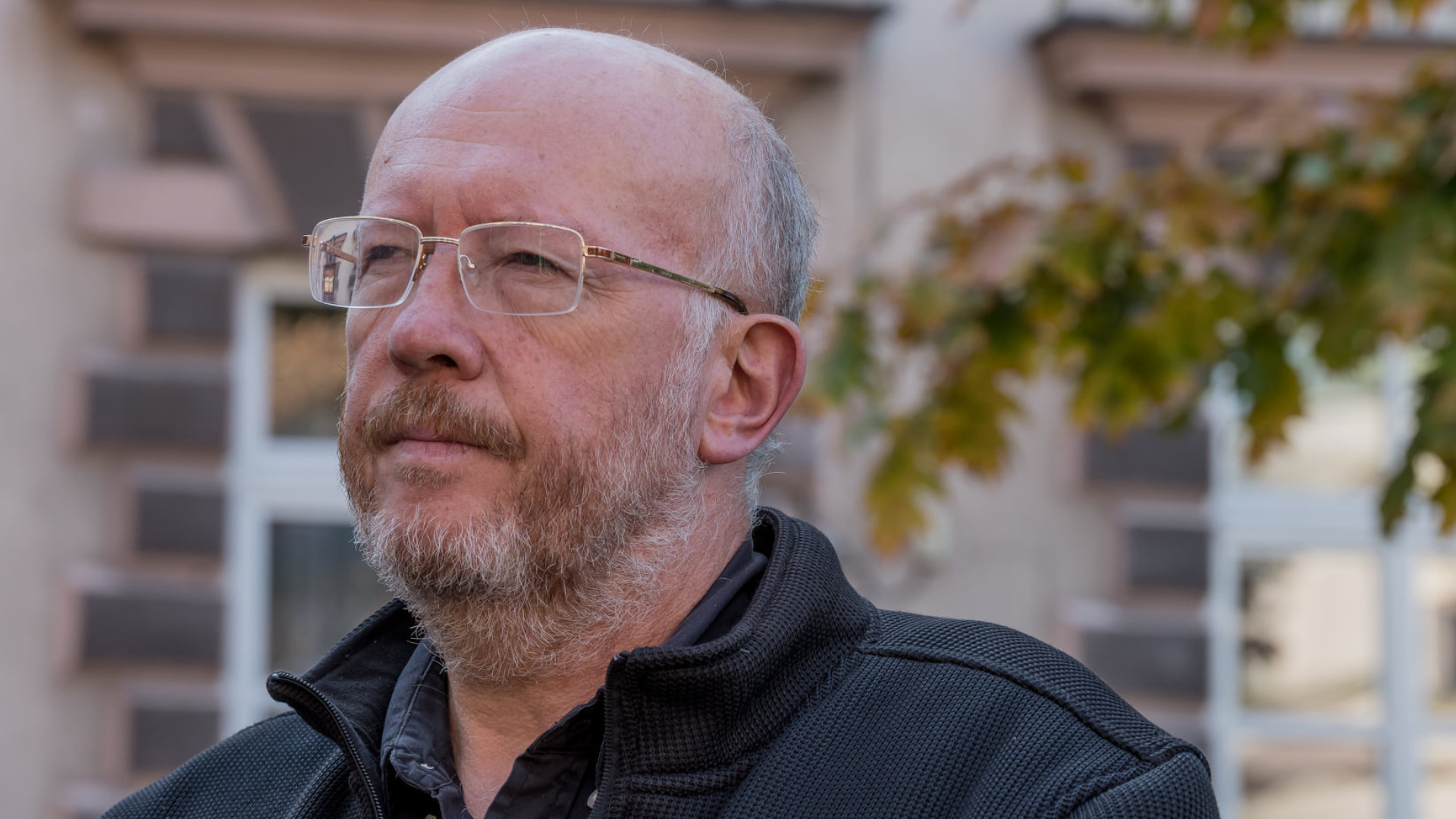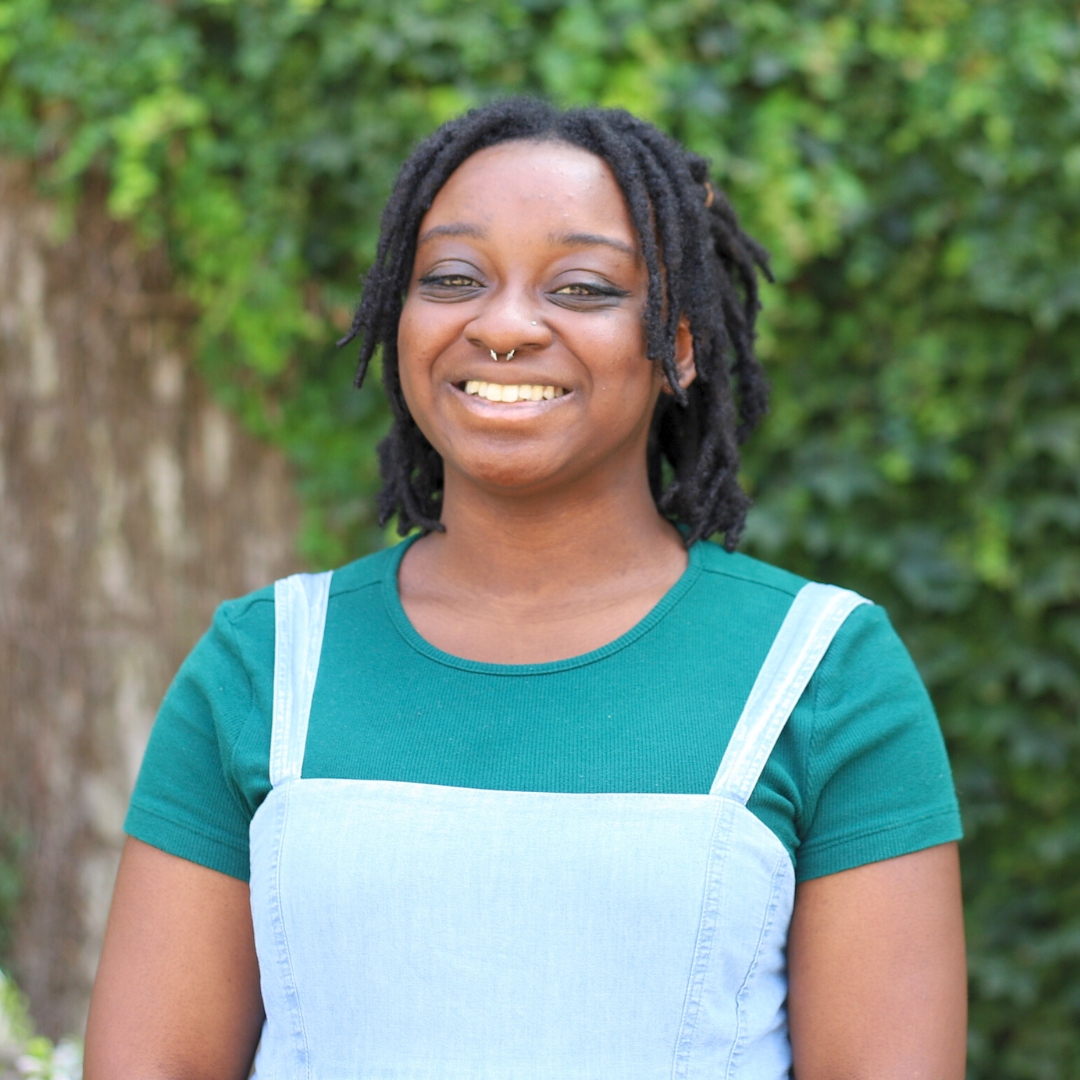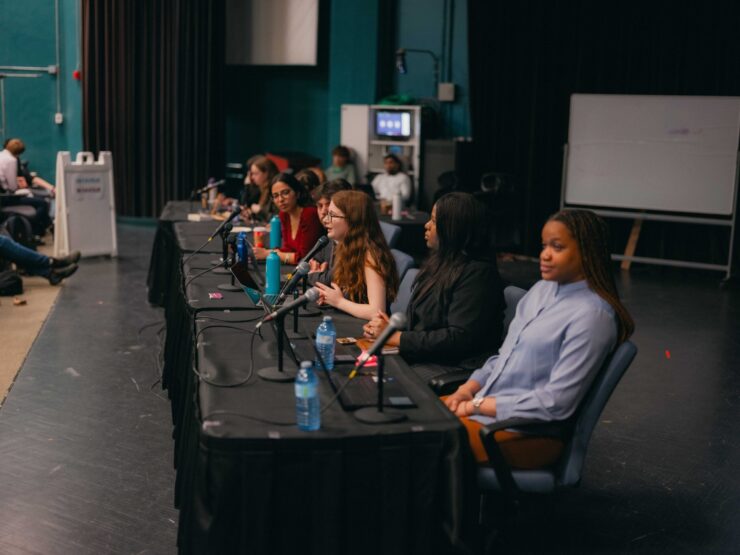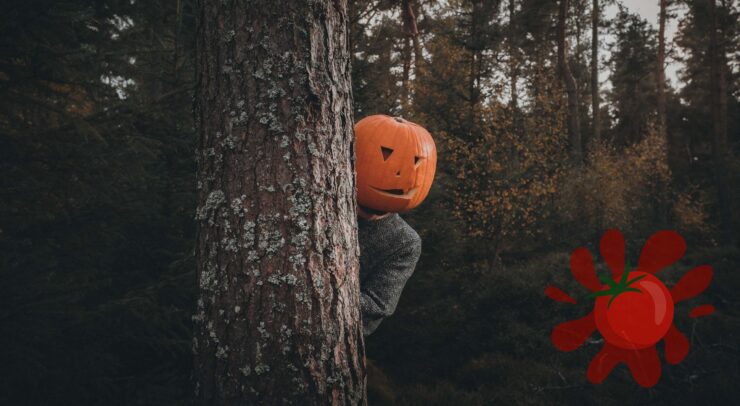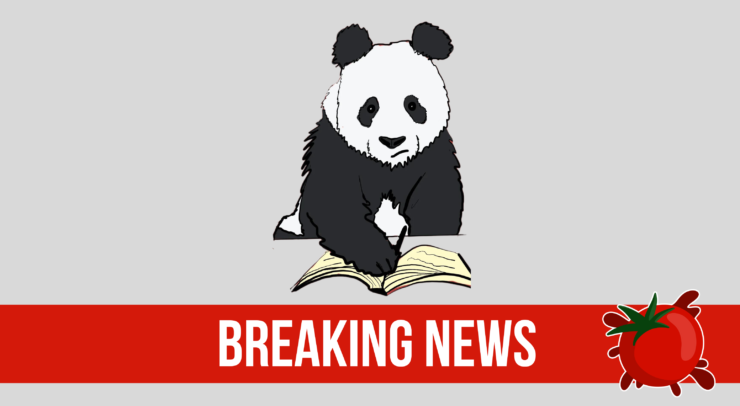Grabowski has been teaching for 30 years, most recently in Poland
Jan Grabowski is one of the University of Ottawa’s most celebrated history professors, researching one of the most devastating points in human history – the Holocaust. He was recognized with the Social Sciences And Humanities Research Council’s Impact Insight award in 2022 for his work and has written several books.
But in Poland, Grabowski’s work is much more polarizing. Just in May, his lecture in Warsaw was violently disrupted by a far-right Polish politician. In 2021, Grabowski and his co-editor, Barbara Engelking, won a libel case brought against them on appeal in Polish courts. The case was brought by a woman who claimed the pair defamed her uncle in the publishing of their 2018 book: Night Without End: The Fate of Jews in Selected Counties of Occupied Poland.
In an interview with the Fulcrum, Grabowski discussed the importance of his research, the phenomenon of Holocaust distortion, and entering his 30th year of teaching. The interview has been lightly edited for clarity and grammatical accuracy.
The Fulcrum (F): How long have you been researching the Holocaust and what drives your research?
Jan Grabowski (JG): Well to start at the beginning, I started to study – let’s say research – the history of the Holocaust a bit more than 22 years ago, right at the beginning of the century. In the beginning, I started my career at the University of Ottawa as a historian of [the] colonial period, so 17th–18th century New France. So, I made quite a significant…change of gears in terms of theory and theme.
And for [the] last 20 few years, I have been researching the history of the Holocaust, or most more precisely, the history of the destruction of the largest Jewish community in Europe, which was [the] Polish [Jewish community], over 3 million strong, which has been practically totally annihilated during the [Holocaust]. So my work…primarily deals with relations between Polish-majority society and the Jews and the Germans in Poland during the war.
F: In a New York Times guest essay, you said that Holocaust distortion is a dangerous new threat spreading across Eastern Europe. I’m just wondering if you can describe what Holocaust distortion is.
JG: Most of our students have heard about something called Holocaust denial, I’m certain that you did too, which is denying the actuality…of the Holocaust. That [the] people who [did] it, they say that it never happened. And they will try to prove to you that gas chambers never existed and things like – this is nonsense, of course. And this was a small, you know, loony fringe, let’s say, and very few people took them seriously.
And what happens nowadays is [a] much greater threat called Holocaust distortion. And this Holocaust distortion, it’s a denial with a twist.
People who engage, or states or institutions who engage in the Holocaust distortion, they do not deny that the Jews have been killed. what they say, however, is that our people, our nation or ethnic group had nothing to do with the fact – that basically, it’s only the Germans. Unfortunately, we know very well today that practically [the] entire European continent took part in this bigger German ‘project’, [sometimes] in a larger way [or] in a smaller way. From France through Belgium, through Holland to Poland and beyond, millions of Europeans made their sometimes small, but always contributing to the German genocidal project.
Now, the problem with this distortion – there are two major problems. One, it is so dangerous because, at the bottom of it, there is some truth. In other words, when people who distort say for instance, in Poland, they will say that our entire society tried to help the Jews during the Holocaust. It’s not true, but it’s true that some people tried to help. So the people who do this distortion, or institutions will turn around say, “look, a few people, Poles helped”. Then let’s say, “all Poles helped” which of course is not true. But at the bottom, you have a grain of truth – some very courageous people did help.
The second thing is that the Holocaust distortion has become, over the years, a sort of official policy of several states, especially in Poland [and] Lithuania too. [This can] extend Hungary [and] Romania. So what happens is, once you have a state involved then you are really in trouble as a historian as I am, for instance, because you are staring down the whole might of a state, right? States have limitless resources. So if they want to publish 1000 books, they will publish 1000 books; and if they wanted to bring to Ottawa three exhibitions – which they did a few years back – which distort the history of the Holocaust, they will do it because they have the means.
So this is what makes this distortion of history – in this case, the history of the Holocaust – particularly insidious and dangerous is [that] there is some truth to what the distortion is to say, and they have limitless resources of state at their disposal.
F: That is incredibly dangerous, especially if it’s coming from governmental groups or large institutions. A lot of people may not consider the resources that they have to help propel this.
JG: Imagine that you have your point of view and suddenly were confronted with relentless agents of the state. And for them, it’s nothing personal, right? They will fight you from 9-5 and if they are tired, there will be someone else picking up on later shifts. So this is the problem that we have, we historians have not anticipated the scale of this assault on history.
F: So I understand that you’re a member of the Polish Centre of Holocaust Research, which is turning 20 this year–
JG: I was, but I quit three or four years ago. But I was with them for 16 years since their founding, I was a member for many years.
F: Oh, thank you for that clarification. Since you were there for so long, what have you learned through your commitment over the 16 years?
JG: Well, first of all, working with a team of very devoted researchers…I mean when I came to the history of the Holocaust, I thought that practically everything had already been written, everything has been discovered – that we know all about the event itself.
And then I found out that there are archives, which had not been tapped by historians. Huge collections of archival evidence, which were never discussed by historians, which substantially changed our ideas about the Holocaust and want [our research] to be more precise. This is what I and my colleagues [studied] and this is so-called New Polish school of Holocaust research.
So what we found was we were focusing on what happened between the dying Jews and the majority…[of] standing society, you know, in the history of Holocaust. Historians are often describing everybody who was not a victim and everybody who was not a perpetrator, as being described as a bystander. I and my colleagues, we took issue with the whole idea of bystanders because, in Eastern Europe where a Holocaust actually was committed, you couldn’t stand by. I mean, there was no bystanding and everyone was involved in some way. You can be passive, you could watch but watching was very much a conscious act. You could turn your eyes away, but still, it was a conscious decision.
The Holocaust was public; it was millions of people, tens of millions of people were watching millions of people led to their deaths and put to death. So this is what we have been studying. And it tells you a lot, not only about the Holocaust but about human nature.
This is what makes history so relevant, right? Because when I learn about how ordinary men like you or I can be changed, transformed into, killing machines, or people who simply lose empathy, lose their moral compass, then it’s very universal. You know, whether we are talking about Rwanda or Holocaust or any other horrifying genocide, we are trying to understand what makes people act the way they do and that’s where history becomes very helpful.
F: So I did want to talk about your journal article about Wikipedia editors, and the research is very foundational and…it’s very important. So I want to ask you, why is it important to thoroughly examine Wikipedia and other online information platforms about the narratives that they can portray?
JG: For me, this article on Wikipedia I wrote it with my colleague, professor Shira Klein. It took us more than two and a half years, I mean, on and off, digging through the piles of evidence. It started with my students, my students who, several years ago, they came up [to me] and said very confusing messages. I started digging [to find] where they are coming up with this strange information, which is completely at odds with what they read in their textbook, or what they hear in my lectures.
So I probed and Wikipedia was at the origin. It was Wikipedia, in this area of history that I lecture [and] teach at the University of Ottawa, I found out [it was] filled with anti-semitic stereotypes – it was as if it were written by Polish nationalists hard at work, which it was, that we found out. So I knew what was getting falsified, what was rewritten in an awful way. I didn’t know how it was being done, because I didn’t know how Wikipedia operated from behind the scenes – it’s a whole world unto itself, I have no idea how it works. So I could describe what is being falsified, and what is the false message.
And then my colleague, Professor Klein from California [is] a specialist in digital media. So she actually took this dive into behind-the-scenes, and she followed up this murky trail of admins and editors were using their own language, their own codes. She found out that if you have a seniority, if you have been [editing Wikipedia] for many years, they have their own editors for Wikipedia volunteers. They are living in their own world. In order to make an edit to a Wikipedia article, you don’t have to have any education history – you just have to have a quotation from a reliable source. And what is a reliable source? That’s a different story.
So the thing that [Klein] found out is that it’s not a legion of people of bad will, it actually takes a few individuals, eight or ten, people with an ax to grind [and] people with some kind of strong ideological bend. I don’t know what they want; they can dominate the field, they can repel editors who want to make good changes, and they can distort the narrative in a very permanent way. And then later on, they protect their turf, so to say. People who want to do positive change and restore balance to the narrative are being chased away.
So this is a wild scene and in this article, I thought [that] it’s important, it makes you aware. Once you go [online], you have to be very, very on your guard, you have to be very critical. If you have an encyclopedia, then you know it has been vetted by specialists. In Wikipedia, you have no idea who did the vetting – no one does! And so, if you have a small group of people who are devoted to distorting and lying, then we are in trouble.
F: As a young person on social media, you can see a lot of prominent minorities spouting a lot of dangerous rhetoric and because of algorithms, it can make its way to your front page even if you don’t engage at all. I do want to talk a bit about misinformation. So what can both internet users and moderators do to hold themselves accountable for maintaining honesty during these conversations, or these online articles about the Holocaust that may not be true, like in the case of Wikipedia articles? This might be a bit outside of your realm of expertise, but I am curious as to your thoughts about that.
JB: Well…there is no way out of social media, there is no way out of Wikipedia, I mean, we have to live with these things, they are not going away. So let’s not delude ourselves, you will be interacting within 90 per cent of cases or even 99 per cent of cases, [we] will have some kind of interaction with the digital world. And simply we have to be very cautious, we have to be sweet street smart, right? It’s just the same way as you were in a big city, you have to display some kind of vigilance, you have to know that there are certain things which you have to avoid. And the same thing here. What I say to my students, actually, is that they have to – in the case of studying history – they have to fall back on specialists [and] vetted sources. So they cannot rely on the floating internet information.
But how to deal with social media that’s beyond my expertise, I wouldn’t even like to start answering your question. You know, I am using only Facebook for professional reasons only. And even then, I’m getting in trouble time after time again, so I’m the last person that can advise you. But a general word of caution will probably be in place.
F: I understand, social media is a very complex web of everything at once, so I will move on to my next question. So you have been a polarizing figure in Polish media, having been to trial over a libel case, and more recently, you had a far-right politician disrupt your lecture. How do you keep going, keep pushing through a lot of this harsh backlash against your work?
JG: The thing is, actually I’m a bit tired now. And I don’t know how long this public activity of mine will last, because all of us have our, let’s say, boundaries beyond which we simply don’t want to move and [I’m] close to [that] level definitely now. But the thing is that more than 10 years ago, I decided to be more of a public historian, meaning that I would try to go beyond the academia. Not only leaving my books and articles on the shelf, but also trying to persuade people through publications, journalistic expressions and articles in newspapers or TV appearances, and interviews. And this, of course, brought me in direct clash with people who were of different mindsets.
So to answer your question, what propelled me and still does, is sort of bondage to the dead I would call it. I mean studying the Holocaust puts a heavy weight on your shoulders, and you think about these millions of people who are killed for absolutely no reason, right? Absolutely no reason. And it gives you a sense of responsibility that you are sort of defending their memory. So in my case, it’s the most important part. It’s not never again, because I don’t believe in never again, but it’s rather a sense of commitment to the dead. And so as long as you have this force propelling you, then it’s okay. Once you lose it, you have to know simply how to lick your wounds, and to avoid further conflict. I’m not quite yet there.
I can tell you one thing that happened, two weeks ago was a violent attack on my lecture, in my lecture room. I have been teaching for more than 30 years, I have never encountered this kind of violence, and it puts everything in perspective. I mean, I am teaching my students that words become deeds at certain points. It’s different when you teach it, it’s different when you feel it; when words of hate, messages of hate become [acts of] violence. And I could see students of the University of Warsaw who attended my lecture who….were frightened, they were traumatized. They have been fed a display of fascist paranoia, right? So this is something that puts you on guard and makes you reflect on what we do.
F: History is an incredibly important field, and I commend plenty of historians because it’s the study of humans and it’s the study of our lives. I commend your work. Those are actually all of the questions I have for today.
JB: Thank you.

